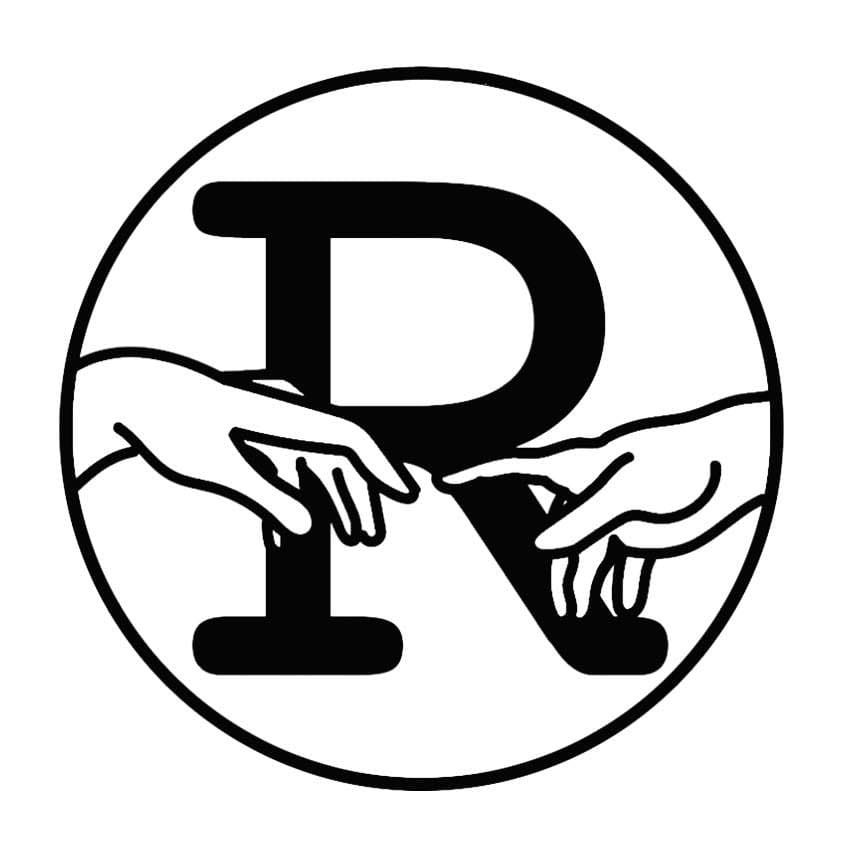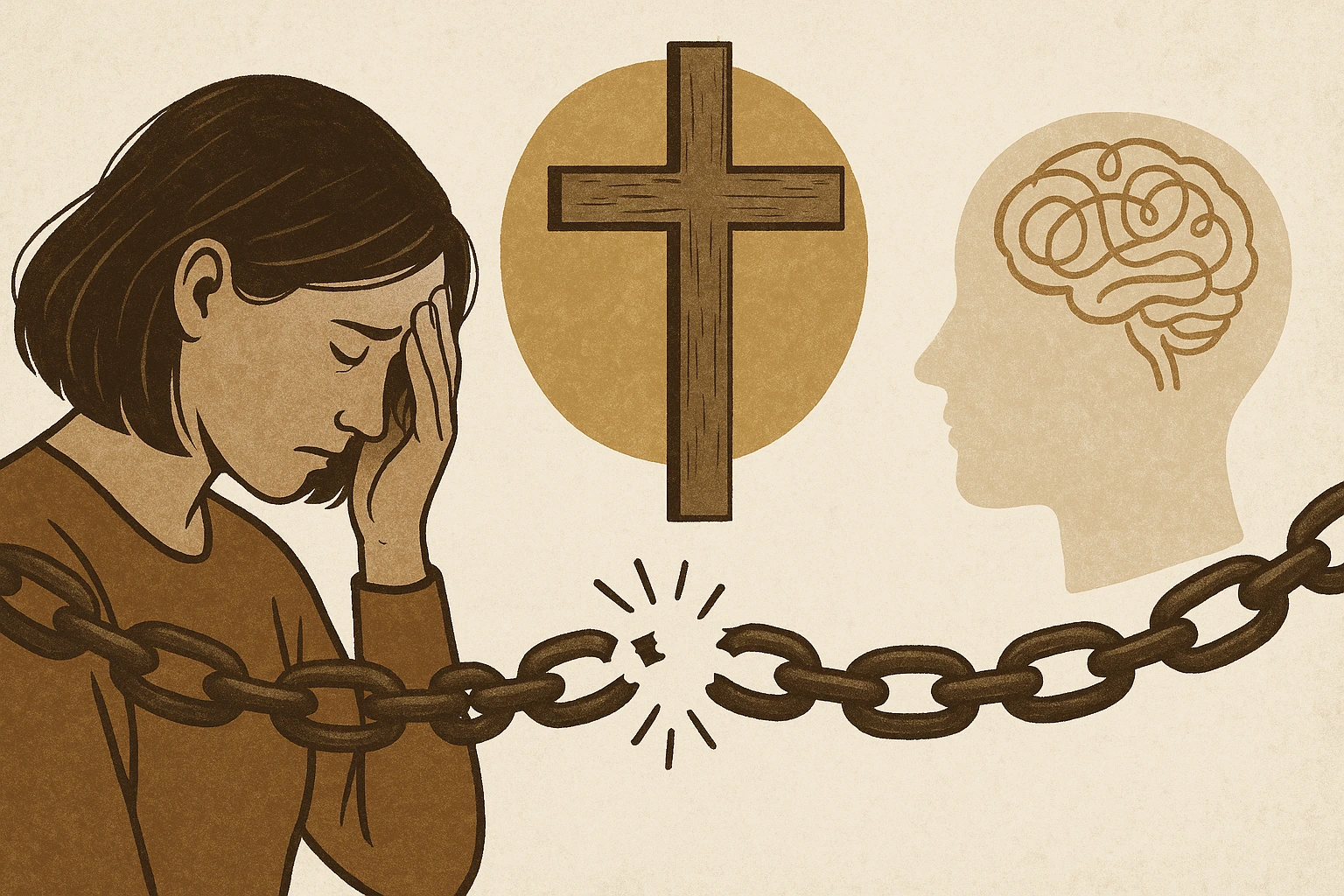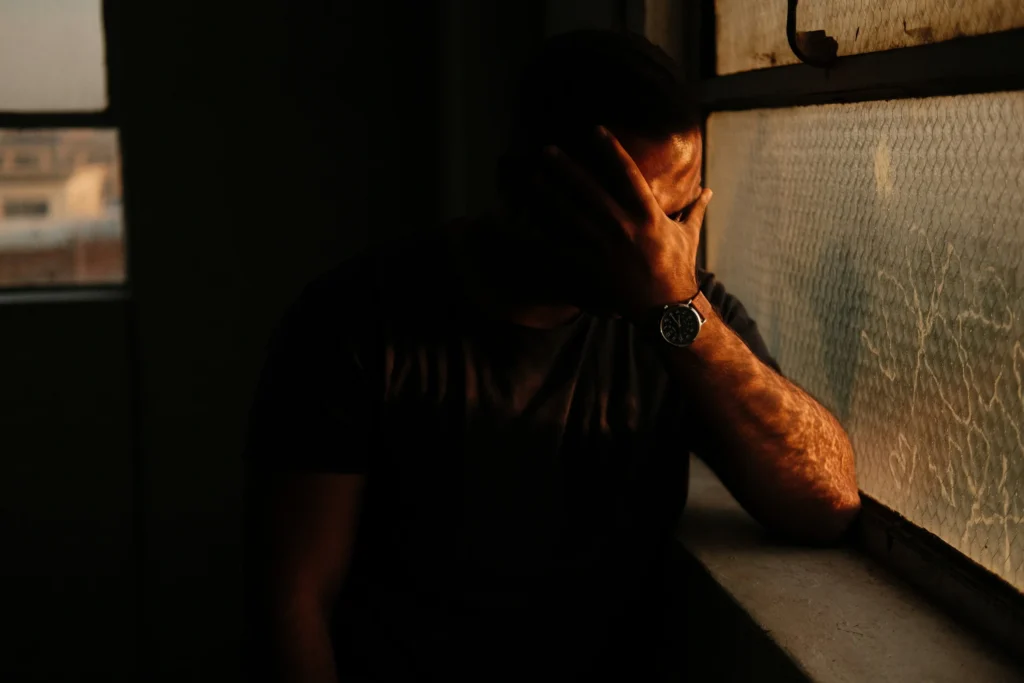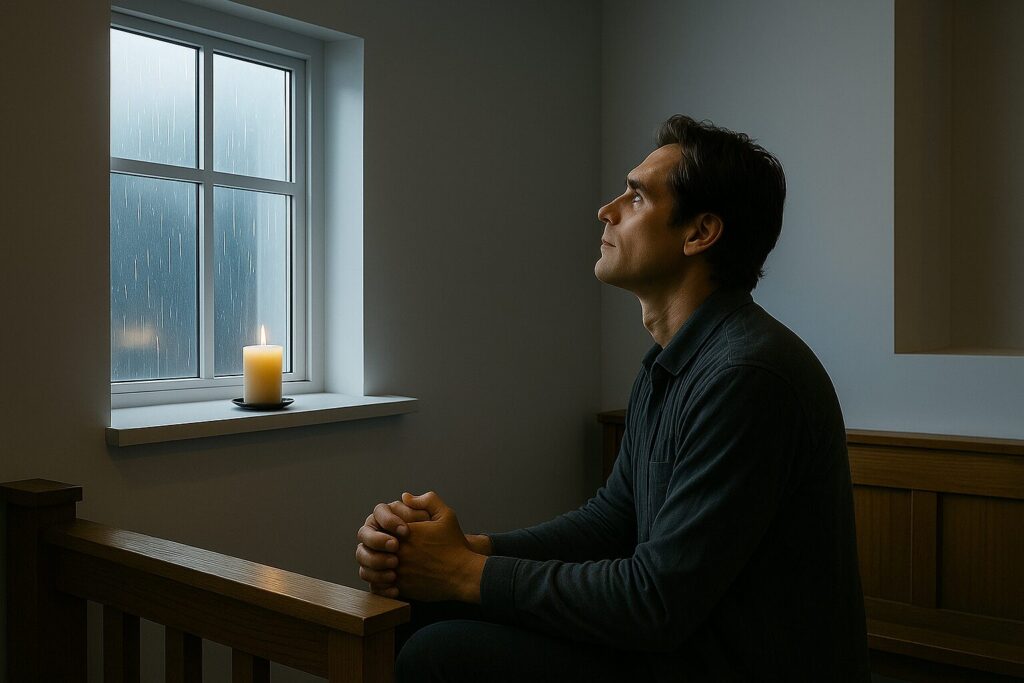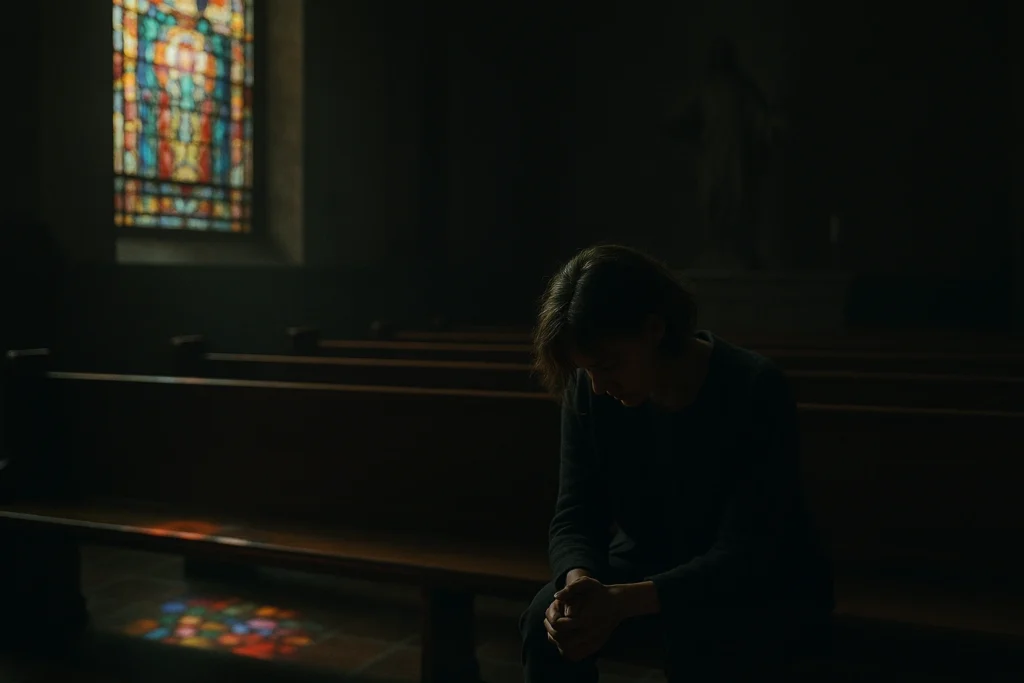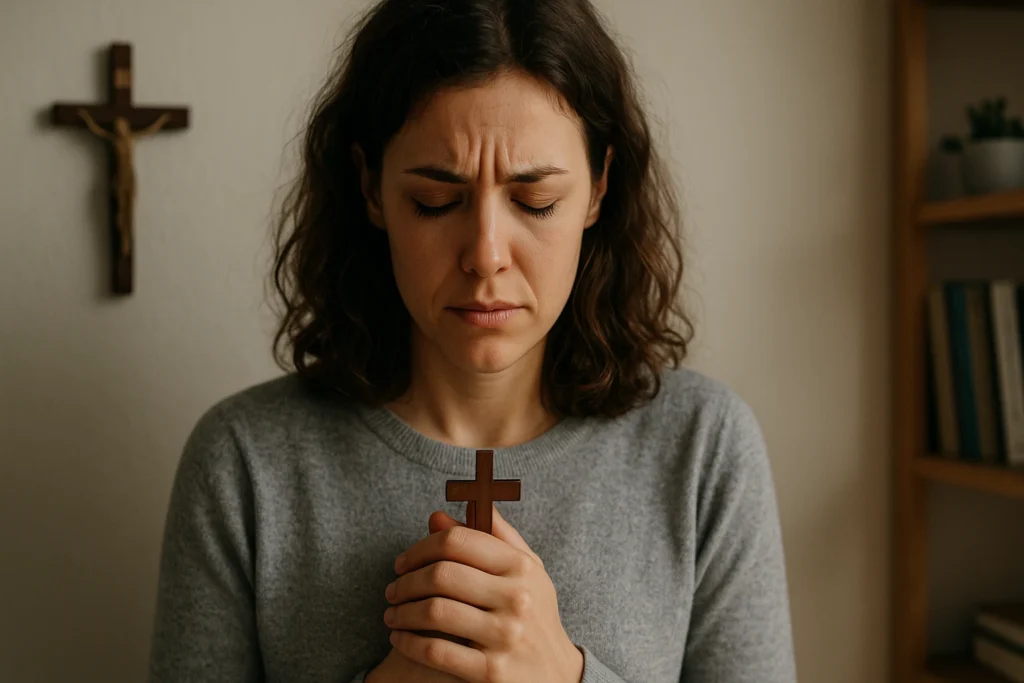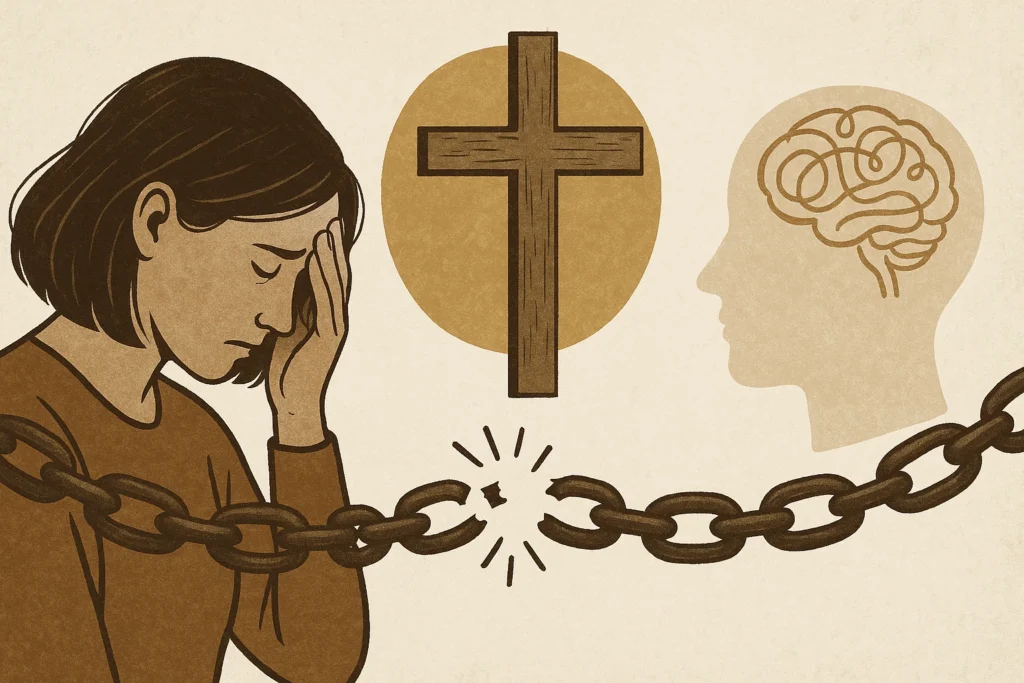Listen to Luke Johanni speak about this article on the Mind and Spirit Podcast!
Breaking free from Shame: Explore how Catholic teaching and modern psychology together offer a path out of shame and into healing.
Welcome back to Mind and Spirit, the space where Catholic faith meets psychology to explore what real healing looks like. In this reflection, I want to talk about something that confuses a lot of us: guilt and shame. Today, we will focus on breaking free from shame through faith and psychology.
Is there a difference? Does God actually want one and not the other? And what does this mean for our spiritual and mental health?
Take a moment and ask yourself: have you ever thought, “I’m such a bad person” and wondered if that feeling was really from God?
Godly grief produces a repentance that leads to salvation and brings no regret, but worldly grief produces death.
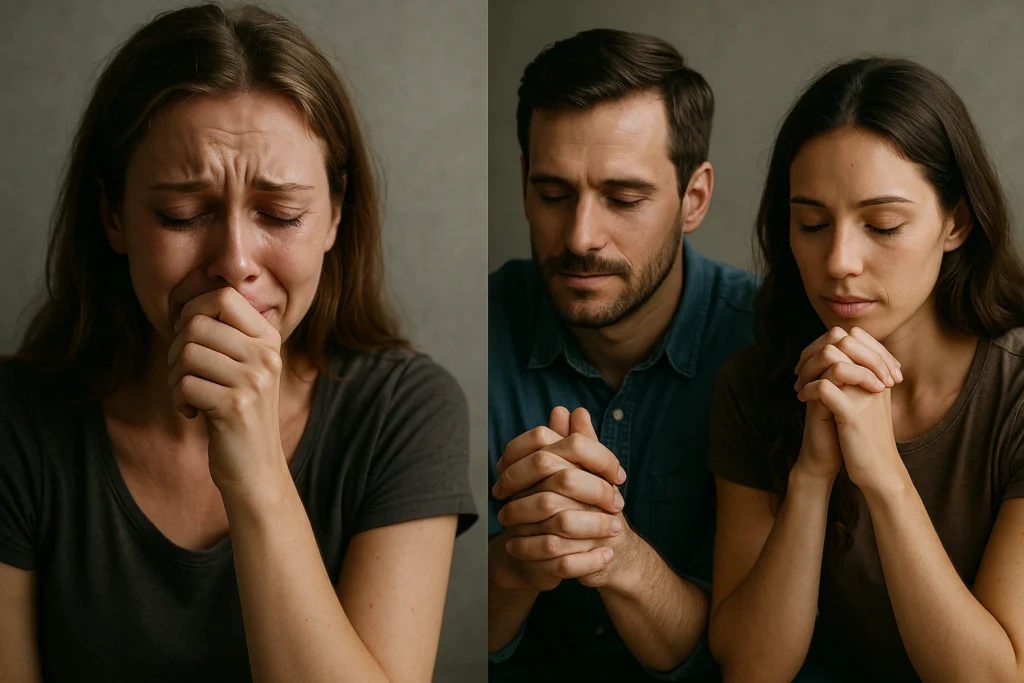
The Problem: Feeling Bad vs. Being Bad
Picture this: you snap at your spouse or slip back into an old sin. Immediately, a heavy weight lands on your heart. But what exactly is that weight?
Is it “I did something wrong” (guilt). Or is it “I am something wrong” (shame). The first is about behavior; the second is about identity. And that distinction matters.
Saint Paul draws a sharp line between these experiences. In 2 Corinthians 7:10 he writes:
“Godly grief produces a repentance that leads to salvation and brings no regret, but worldly grief produces death.”
This Godly grief moves us toward change and life. Worldly grief (shame) paralyzes, isolates, and eventually kills hope.
It’s worth asking: how often have we confused shame with holiness?
Scripture and the Struggle
Saint Paul himself knew this battle. In Romans 7 he admits:
“I do not do the good I want, but I do the evil I do not want.”
He calls it a war within his own body. The Catholic Church doesn’t gloss over this reality. The Council of Trent teaches that even after baptism we still wrestle with concupiscence (the inclination to sin) but that inclination is not sin itself.
In other words, your struggle is real, but it is not your identity.
Then Saint Paul pivots:
There is now no condemnation for those who are in Christ Jesus.
This doesn’t mean there is no responsibility for our wrongs. It means we can face our faults without losing ourselves. We can feel guilt without drowning in shame.
Catholic Teaching: Contrition, Not Self-Loathing
The Catechism of the Catholic Church calls healthy guilt contrition. It defines contrition as:
Sorrow of the soul and detestation for the sin committed, together with the resolution not to sin again.
There is perfect contrition, born from love of God above all else, and imperfect contrition, which still disposes us to receive forgiveness. In both cases, God isn’t asking us to wallow; He’s inviting us into repentance and freedom.
The sacrament of Reconciliation restores us to God’s grace and is followed by what the Catechism calls “peace and serenity of conscience” (CCC 1468).
So if you’ve ever felt like sadness over sin should crush you, the Church’s wisdom says otherwise: let guilt move you, not define you.
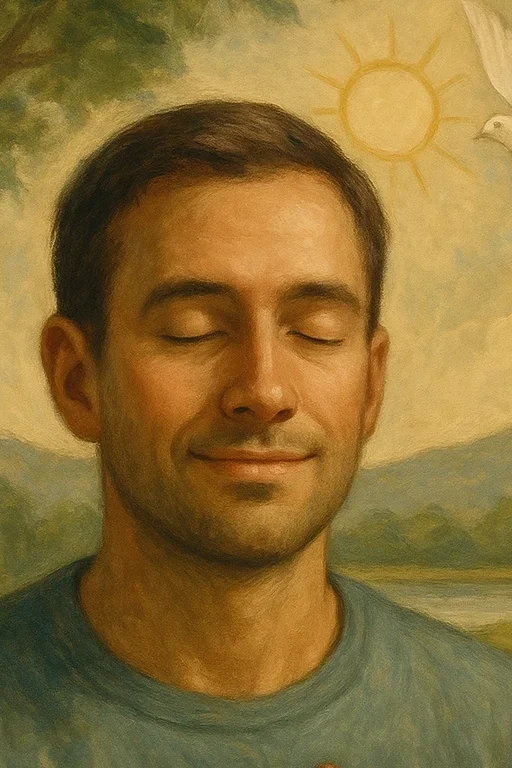
A Theology of Shame: John Paul II & Aquinas
Saint John Paul II, in his Theology of the Body, reflects on Genesis 2:25, where Adam and Eve were “naked and not ashamed.” He calls this state an “original and beatifying immunity from shame.”
After the Fall, shame appears as a signal that something is wrong. As John Paul II explains, we (historical man) can only understand our original innocence through the experience of shame. But shame is not meant to be a permanent home. It’s a doorway back to dignity.
Saint Thomas Aquinas adds clarity here. He writes that “shamefacedness is not a virtue but a passion, a kind of fear”. It can prompt us to change, but it’s not the goal of the moral life. Our goal is always charity, not self-contempt.
Shame can prompt us to change, but it is not the goal of the moral life.

Breaking Free From Shame: A Therapist’s Take
From a therapist’s perspective, I see what the Church already knows. Healthy guilt can lead to healing. When you feel appropriate remorse, you want to fix what you did. You confess, you apologize, you make amends. Saint Paul himself lists fruits of Godly guilt, “earnestness, indignation, longing, zeal,” all movements toward repair.
Shame, on the other hand, tells you that you are the problem. Shame whispers, “Hide. No one could love you if they knew.” That’s worldly guilt. It leads to self-hate, isolation, depression, and despair.
Psychology confirms this distinction:
- Guilt motivates repair.
- Shame motivates avoidance.
The good news? You can learn to separate the two. When you fall, ask: What did I do wrong? not Who does this make me? Then take the steps the Church gives: examination of conscience, sincere contrition, confession, and restitution. These not only heal relationships but restore peace of conscience.
Breaking Free From Shame: Practical Steps
Here are some real-life practices that bridge faith and psychology:
- Examine Honestly. Each night, take two minutes. Name one specific thing you did wrong. Avoid vague self-condemnation like “I’m a bad person.” Ask for godly sorrow.
- Pray Psalm 51. “A contrite, humbled heart, O God, You will not despise.” Let that truth seep deep.
- Confess Regularly. Don’t wait for a crisis. Go to the sacrament, bring the truth, and receive absolution.
- Repair Damage. Apologize. Return what you took. Make the phone call. Guilt without restitution stays shallow; restitution rebuilds trust.
- Claim Your Identity. Each morning look in the mirror and say: “There is no condemnation for me in Christ Jesus.” You are not your sin. You are a beloved child being restored.
A Closing Invitation
If you feel stuck in shame, hear this clearly: godly grief brings healing. The Father isn’t mad at you; He is inviting you home.
Let me offer this prayer for you:
Father, for everyone carrying shame, pour out Your mercy. Turn worldly sorrow into godly sorrow. Give us contrite hearts that trust Your forgiveness. Help us to confess boldly, repair what we’ve broken, and live in the freedom of Christ. Amen.
If this reflection resonates with you, share it with someone who struggles with shame. For more insights on integrating Catholic faith and psychology, follow me on Instagram @LukeJohanni or visit RestoredChristianCounseling.com. Each week I share practical tips to help Catholics seek healing.
Remember: Your story isn’t over. Godly grief leads to life. Shame is just a doorway, don’t live there. Walk through it into mercy.
How Porn Hijacks Your Life (and How to Break Free)
Authentic Masculinity: Strength Ordered To Love
The Silent Struggle of Men: Finding a New Strength
When God Feels Far: Why You Feel Abandoned and How to Find Him Again (Part 2)
When God Feels Far: Why You Feel Abandoned and How to Find Him Again (Part 1)
Healing Trauma: With Psychology and Faith (Part 2)
Healing Trauma: With Psychology and Faith (Part 1)
Healing Scrupulosity and OCD: A Proven Path of Faith
The Truth About Anxiety: One Size Doesn’t Fit All
Breaking Free from Shame: The Power of Faith and Psychology
Mind and Spirit: From Brokenness to Calling
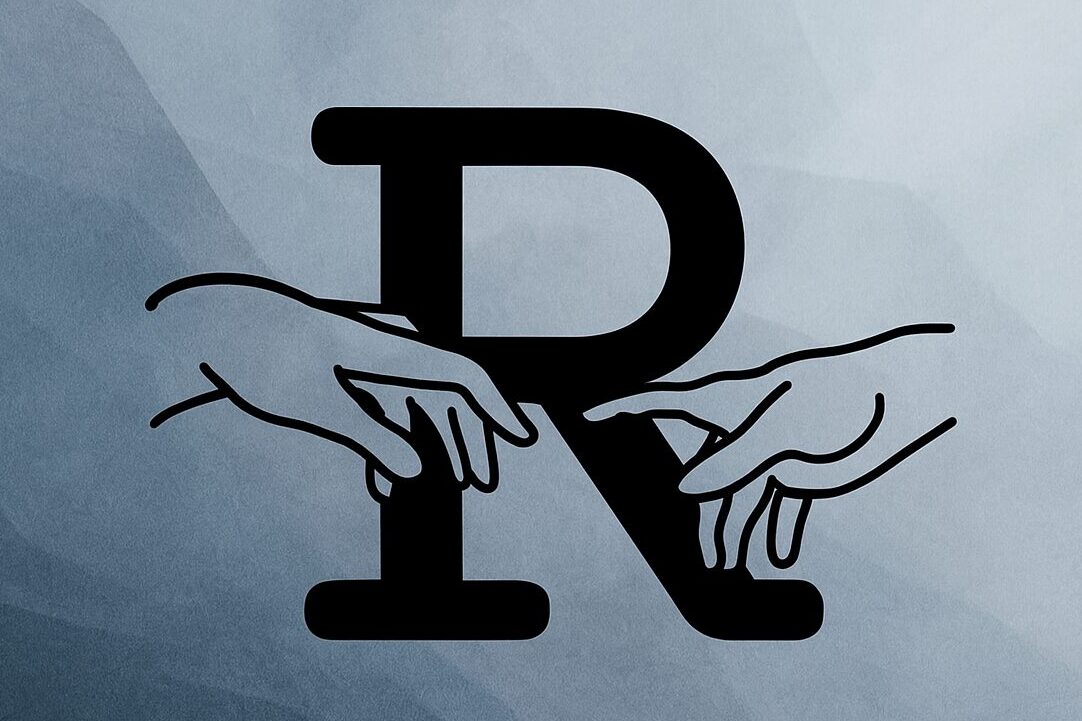
Have a question? Want it answered?
Submit your question below and it maybe answered on the Mind and Spirit Podcast and in this Blog. If you’d like a personal email response, please include your email.*
*Please note: Submitting a question through this form does not constitute therapy, nor is it intended to. It does not establish or initiate a therapeutic relationship. Learn more in our Privacy Policies.
Follow me on Instagram and Facebook or subscribe to the blog for weekly encouragement.
